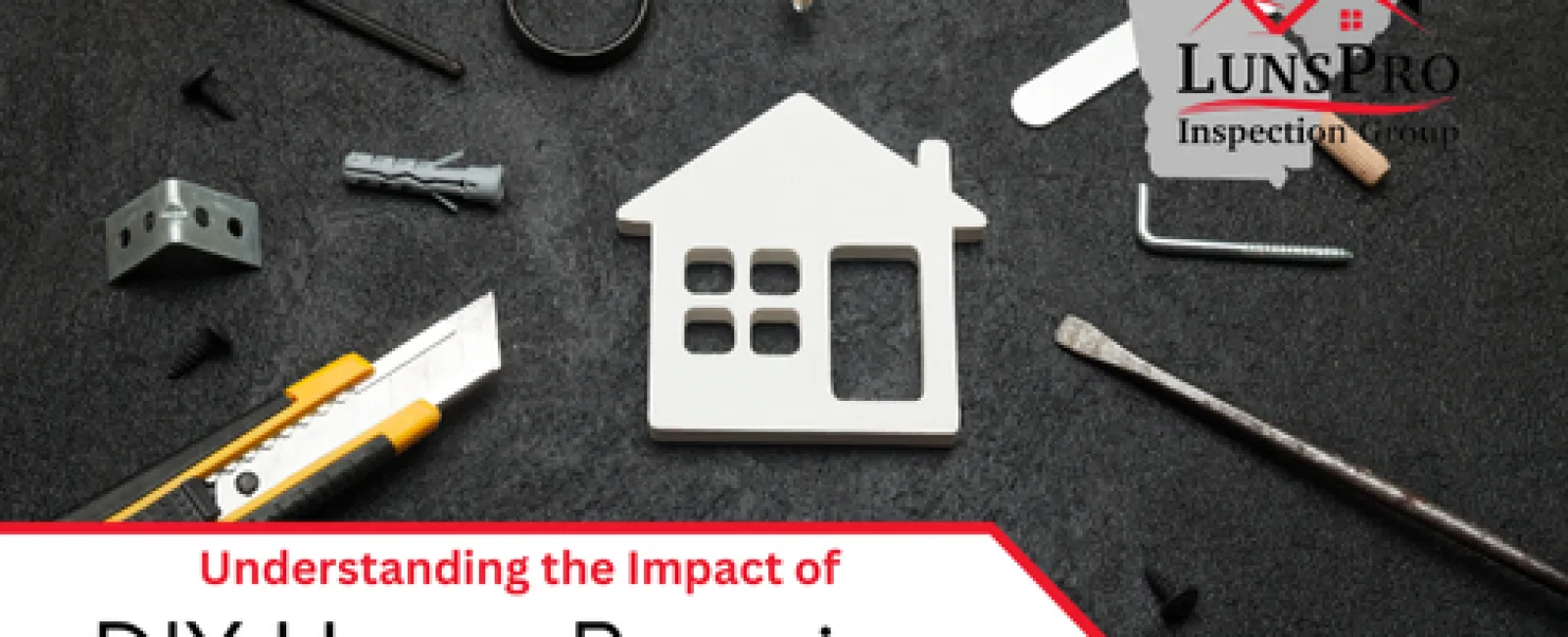DIY home repairs offer homeowners in Atlanta, GA, a chance to customize their spaces and potentially save on costs. However, the allure of saving money can sometimes lead to unintended consequences. At LunsPro Home Inspections, we frequently observe DIY projects that, while well-intentioned, can inadvertently compromise the structural integrity and safety of homes. This article delves into the complexities surrounding DIY repairs, highlighting common pitfalls that homeowners may encounter and examining how these efforts can influence the outcome of a professional home inspection. Understanding these impacts is crucial for homeowners looking to maintain both the value and safety of their homes over the long term.
Undertaking DIY repairs without adequate knowledge or experience can often result in issues that are not immediately apparent. For instance, improper electrical work, plumbing installations, or structural modifications can pose serious safety hazards. These issues may not only fail to meet building code requirements but could also lead to costly repairs down the line. At LunsPro Home Inspections, our inspections aim to uncover any hidden deficiencies caused by DIY efforts, ensuring that homeowners are aware of potential risks and can take corrective actions promptly. By emphasizing the importance of professional expertise in home maintenance, we strive to help homeowners in Atlanta, GA, maintain the integrity and safety of their properties effectively.
The Appeal of DIY Home Repairs
DIY home repairs have become increasingly popular due to:
Cost Savings: DIY projects enable homeowners to save considerably on labor costs associated with hiring professional contractors.
Personal Satisfaction: There's a deep sense of accomplishment and pride that comes from successfully completing a home repair or improvement project independently.
Customization: DIY empowers homeowners to tailor their living spaces precisely to their tastes and needs, from small decor updates to more significant renovations.
Skill Development: Engaging in DIY projects offers an opportunity to learn new skills and gain practical experience, enhancing personal knowledge and capabilities.
Flexibility and Control: Homeowners have the flexibility to work at their own pace and exert full control over the design and execution of projects, ensuring they align perfectly with their vision.
Timeliness: DIY repairs can often be completed more quickly than waiting for professional scheduling, allowing for faster resolution of issues and improvements to the home.
Experimentation: DIY encourages creativity and experimentation with materials, techniques, and design ideas, fostering innovation and unique home solutions.
These advantages make DIY home repairs an appealing option for many homeowners looking to enhance their living spaces affordably and with a personal touch.
Common DIY Home Repairs and Their Risks
- Electrical Work: DIY electrical repairs can be dangerous and lead to serious safety hazards if not done correctly.
- Plumbing: Incorrectly installed plumbing can cause leaks, water damage, and mold growth.
- Roofing: Improper roofing repairs can lead to leaks, structural damage, and increased energy costs.
- Flooring: Poorly installed flooring can result in uneven surfaces, trip hazards, and damage over time.
- Structural Changes: Removing walls or altering structural components without proper knowledge can compromise the integrity of a home.
How DIY Repairs Impact Home Inspections
- Code Violations: DIY repairs often do not comply with local building codes, leading to issues during inspections.
- Safety Hazards: Improper repairs can create safety hazards such as electrical fires, water damage, and structural failures.
- Aesthetic Issues: While aesthetics are secondary to safety, poorly executed repairs can detract from the home's appearance and value.
- Future Repairs: Inadequate repairs may require professional intervention later, leading to higher costs.
LunsPro Home Inspections: Identifying and Addressing DIY Repairs
At LunsPro Home Inspections, we are trained to identify signs of DIY repairs and assess their impact on a home's condition. Our process includes:
- Thorough Visual Inspection: We examine all aspects of the home for signs of DIY repairs, such as mismatched materials, visible tool marks, and unconventional techniques.
- Safety Assessment: We evaluate the safety of electrical, plumbing, and structural repairs to ensure they meet standards.
- Code Compliance Check: We check for compliance with local building codes and regulations.
- Detailed Reporting: We provide a comprehensive report outlining any issues found, their potential impact, and recommended actions.
Specialized Inspections to Complement DIY Repair Evaluations
In addition to standard inspections, LunsPro Home Inspections offers specialized services to address specific concerns:
- Atlanta Drone Inspections: Utilize drones to inspect hard-to-reach areas, such as roofs and gutters.
- Atlanta Septic and Sewer Scope Inspections: Inspect septic systems and sewer lines for issues.
- Atlanta Radon Testing: Test for radon levels to ensure a safe living environment.
- Atlanta Mold and Air Quality Testing: Assess indoor air quality and check for mold presence.
- Atalnta Pool Inspections: Inspect swimming pools for safety and functionality.
- Atlanta House Evaluations: Provide comprehensive evaluations of all aspects of a home.
The Impact of DIY Repairs in an Atlanta, Georgia Home
In our inspections of homes in Atlanta, GA, we frequently encounter instances where DIY repairs have inadvertently led to significant issues that impact the overall safety and integrity of the property. These include:
Electrical Hazards: DIY electrical work often results in overloaded circuits, exposed wiring, and improperly installed fixtures, posing serious fire hazards and electrical safety risks.
Plumbing Problems: Improper installation of plumbing fixtures and pipes can lead to leaks, water damage, and inefficiencies in water flow, particularly affecting areas such as bathrooms, kitchens, and utility rooms.
Structural Complications: Modifications such as removing load-bearing walls without proper reinforcement can weaken the structural integrity of the home, potentially leading to structural failures and safety hazards over time.
Aesthetic and Functional Issues: DIY projects may not always meet aesthetic expectations or functional requirements, impacting the overall usability and appeal of the home.
While the allure of DIY home repairs can be tempting, it's crucial to recognize the potential risks they entail, which can significantly impact a home's overall condition and safety. At LunsPro Home Inspections, we empathize with the challenges homeowners face and prioritize delivering thorough inspections that uncover any issues stemming from DIY repairs. Our goal is to provide clarity and actionable insights, whether it's identifying structural vulnerabilities, evaluating electrical and plumbing installations, or assessing the integrity of modifications. From standard home inspections to specialized services such as radon testing and mold evaluations, our dedicated team is committed to safeguarding the well-being and longevity of your home. For homeowners in Atlanta, GA, and surrounding areas, count on LunsPro Home Inspections for reliable and comprehensive evaluations that prioritize your peace of mind.

